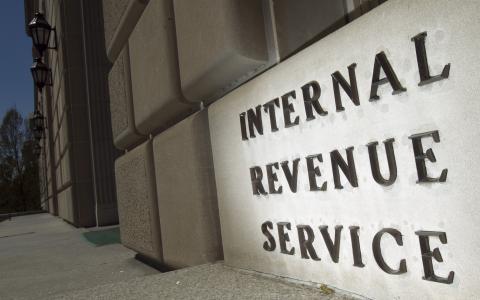
(Think Advisor) The Internal Revenue Service has reversed course in private letter rulings, allowing Nationwide and Lincoln Financial to treat the payment of an advisory fee from a variable, fixed indexed or hybrid nonqualified annuity as a nontaxable distribution. The move is being hailed by fee-only advisors as a means for them to get compensated for their advice.
Over the last 10 years, “the most consistent piece of friction that advisors have come to us about [is] how not being able to take their fee out of a nonqualified annuity was really a headache for them in using this type of product,” Craig Hawley, head of Nationwide Advisory Solutions, said in an interview.
The IRS ruling essentially conforms the tax treatment of properly structured advisory fees from nonqualified annuities with those from qualified accounts such as 401(k)s, 403(b)s and IRAs, which typically are not treated as taxable distributions, Nationwide explained.
Expert’s Opinion
IRA expert Ed Slott explained that the IRS’ ruling is a good one, “for both advisors and consumers,” for two reasons. Under this ruling, which Slott says is “for Nationwide only, the nonqualified annuities will receive the same treatment that IRS has allowed for IRAs and 401(k)s, where paying the fees directly from the account would not be considered a taxable distribution, but rather an expense of the account, eliminating any potential tax on a fee, which would be a double expense.”
Also, “since investment fees are no longer deductible under the new tax law — The Tax Cuts and Jobs Act — (before 2018 some taxpayers who itemized deductions could deduct those fees), paying the fees from the account (the annuity) could effectively restore the deduction since the fees are being paid with funds that might otherwise be taxable when withdrawn, reducing the tax bill at that point,” he said.
Slott pointed out that “no two annuities are exactly alike. Other annuity companies or clients cannot rely on this [Nationwide or Lincoln IRS] ruling, but it does provide insight on how IRS would rule on an annuity with the same features.”
Tax Context
Historically, Hawley explained, the IRS has “interpreted how advisory fees should be taxed depending on whether the advice was being given on a qualified account or on a nonqualified account.”
In the qualified account, in any qualified plan or if an annuity had been funded with an IRA or 401(k), “the IRS took the position that the advice was part of the plan itself, and therefore was not deemed to be a taxable distribution,” Haley said.
“A customer could get advice from an advisor in those accounts and would not be taxed on paying for that advice,” he added.
On the nonqualified side, the IRS “took the position that the money was coming out of the annuity, whether the customer took that money and bought a house with it, paid their mortgage, paid for their groceries or paid for investment advice, it was all the same — they were going to get a taxable distribution.”
Impact on Advisors
Nationwide Advisory Solutions has been one of the only carriers with a technology platform that gives advisors an automated solution to receive their fee directly from the annuity, Hawley said. But the “favorable ruling on the tax treatment of advisory fees is another milestone in our mission to truly meet the unique needs of RIAs, fee-based advisors and the clients they serve.”
Darin Shebesta, vice president of Jackson/Roskelley Wealth Advisors in Scottsdale, Arizona, explained that he sees the IRS’ move as “a step in the right direction.” The ruling “helps level the playing field to allow all types of advisors to make annuities available as a strategy for clients. It reduces the barrier for fee-only advisors to be compensated for their advice.”
Advisory fees for the nonqualified annuity cannot exceed 1.5% of its cash value, according to the IRS ruling. The ruling applies only to fee-based nonqualified annuities, for which the advisor does not receive a commission related to the sale, according to Nationwide, and the fee is paid with respect to the investment advice received by the contract owner specifically related to the non-qualified annuity.
By including the 1.5% cap, Hawley said, the IRS “wanted to make sure that it was only advice tied to the annuity,” and that the advisor would not “be able to pull the entire fee from the money they’re managing outside of the annuity tax free.”
Lincoln Financial Group also received an IRS private letter ruling on the matter, and Hawley suspects other carriers will get a letter of our own, if they haven’t already. “Operationally we’re already prepared to deal with this, whereas I suspect some carriers will have some work to do,” Hawley said.
Tad Fifer, vice president and head of RIA distribution at Lincoln Financial Group, said in a statement that Lincoln’s advocacy “for this [IRS] decision underscores the focus we’ve placed on understanding the unique needs of this channel, and simplifying advisor experiences as they continue to provide protected lifetime income for their clients. Lincoln is pleased with the favorable decision from the IRS and believes this new ruling will make it easier for investment advisors to incorporate nonqualified annuity solutions as part of their planning strategies.”



